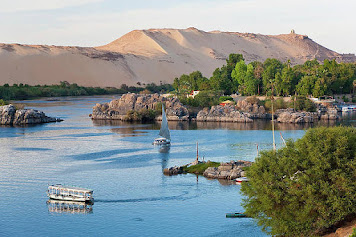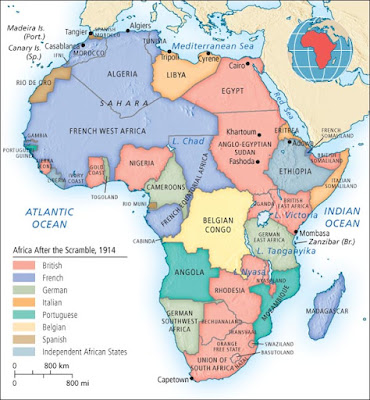Going beyond Egypt and Ethiopia
In the last blog, we talked about the contrasting views of upstream Egypt and downstream Ethiopia on the Great Ethiopian Renaissance Dam. But this debate goes beyond these two countries, and we will dig into the external factors and stakeholders in today's post.
Climate Change
Egypt's agitation over the alteration of the Nile did not come solely from the GERD itself. Egypt's agricultural sector is highly vulnerable to rising sea levels and intensified droughts, which complicates the Nile River conflict more than it already is (Agrawala, 2004). The high temperature has made the farming seasons more unpredictable and has since then increased the amount of irrigation needed for crops.
Impacts of climate change on Egypt's farmlands
On the other hand, Egypt scrambled to 'squeeze' yet more water from the Nile as Ethiopia began its GERD power generation. Extensive talks were conducted over water provision, yet very little attention was put on the Nile River Basin environment. When the entire annual flood is captured behind the High Aswan dam and utilised by farmers, it blocks off water flow into the sea and aggravates the rapid erosion in the Nile River Delta. (Connif, 2017).
Political Power Shifts
The shift in global power relations has complicated the GERD debate in multiple ways. The project began in the midst of the Egyptian revolution, and after the upstream countries joined forces to contest the hydro-hegemony of Egypt (Chen & Swain, 2014). Egypt was able to uphold its status-quo with the backing of the West, but as China rose as a global superpower, it became increasingly difficult. The Belt and Road initiative, the global infrastructure development strategy established by China in 2013, funded Ethiopia's infrastructural projects when the World Bank and African Development Bank would not. However, it is notable that China was also investing in the construction of Egypt's new capital and the expansion of the Suez Canal, and it may help strengthen Egypt's declining political and military influence. Nevertheless, the Red Sea region is a paramount geopolitical flashpoint that houses a large number of foreign military bases, many of which belong to the members of the UN Security Council, making the area a strong geo-strategic priority (Melvin, 2019).
Belt and Road Initiative (Source: Wikipedia Commons)
Another major riparian, Sudan, originally sided with Egypt, but as Egypt's position weakened, we began to see Sudan aligning with its upstream neighbours instead (Hussein, 2014). Without the support of its downstream counterpart, Egypt now reaches its hands to the now independent South Sudan, a riparian that has a large wetland area, namely the Sudd, under its jurisdiction. Seeing the Sudd as a potential alternative source of water, bilateral discussions between the two countries on cooperative water infrastructure development are ongoing (Aman, 2014).
Climate change and political shifts added more layers of uncertainty to the future of the GERD discussion. So what negotiations were made to attempt to settle this age-old challenge of governing the commons? Stay tuned for the next blog.



Comments
Post a Comment